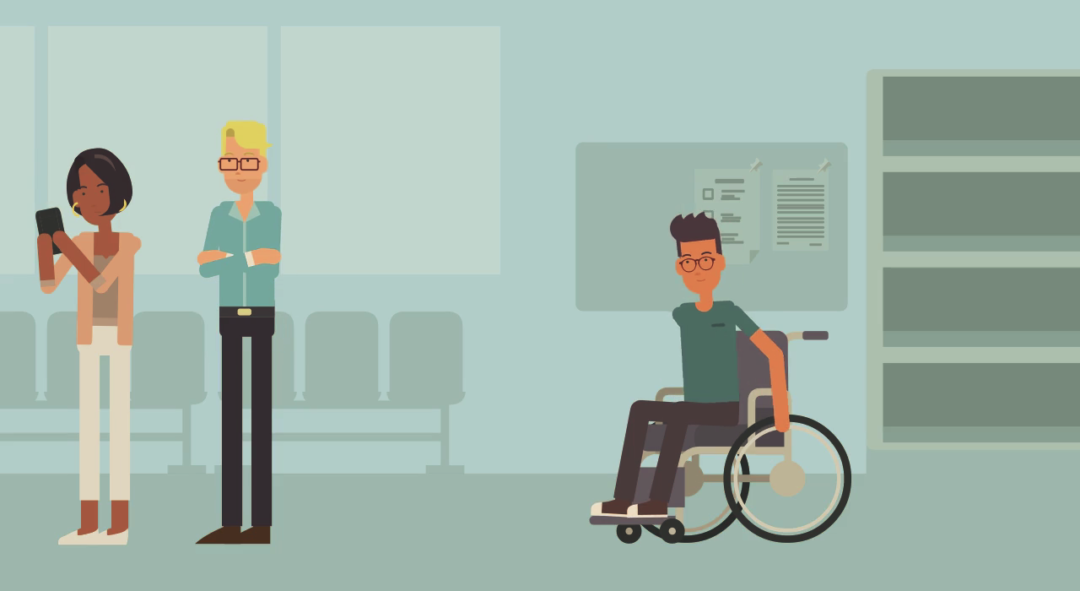Accessibility: Respect, Dignity and Empathy Part 1
Being aware of the some the challenges those with disabilities face is crucial to being able to provide them with a great guest experience
Every person on our planet is unique. Sure, you can group people into broad categories, such as sex, sexual preference, ethnicity, origin, culture, likes and dislikes and past experiences. But the more specific you get, the smaller the categories get until you’ve probably managed to put everybody into a group in which only one person fits. And like you, everybody has their own strengths and weaknesses, their own challenges and triumphs, including those who are differently abled or those with a disability. And everybody has a right to respect and dignity.
So how do we give and maintain that respect and dignity that everybody deserves? Remember the 3As: Awareness, Attitude and Adaptability. Those concepts are key to providing everybody with the respect and dignity they deserve, as well as providing them a pleasurable and memorable guest experience where their expectations are met and exceeded.
Awareness
Being aware of the different disabilities that people can have and how to make sure an excellent guest experience is accessible for everyone is crucial. While it’s important to understand and be able to explain the different physical accommodations your place of work has for those with disabilities, such as ramps, auditory/visual fire alarms, walk-in showers, wide doorways, elevators etc., it’s important that you aware of situations in which someone may or may not need a unique accommodation.
There numerous kinds of disabilities and you will not always be able to plainly see them. So how do you prepare to help those with disabilities? Do your research! It’s up to you to aware of all the kinds of people you will meet in the hospitality and tourism industry and how you might best assist them. Educate yourself about the challenges that people with different disabilities have, as well as the strategies they use to overcome or mitigate those challenges
Important: Do not assume that someone needs a special accommodation just because you may think they do or because you’ve done independent research about certain disabilities. Remember, everybody is unique. Doing your research will give you an idea of how to best assist those that need. But again, DO NOT ASSUME YOU KNOW EVERYTHING ABOUT SOMEONE’S SITUATION.

Attitude
When it comes to accessibility, attitude is perhaps the most important concept. Your attitude about accessibility will affect your awareness of disabilities as well as your ability to adapt your service and the experience to meet the individual needs of guests. In this case, there is a correct attitude to have, and that is one of empathy.
Empathy is the ability to understand and share the feelings of another. Your ability to have empathy for ALL of your guests is critical to providing a great guest experience for everyone. Here are some questions that you can ask yourself. How do you feel when you’re embarrassed? When you’re disrespected? When someone makes unfair assumption about you? Being empathic towards someone else’s experience will help you make the right decisions and tailor they’re experience to meet their needs.
When we think about empathy, we typically think about being empathic in a situation where someone is sad. People who have disabilities do not want you to feel sad for them. You don’t need to apologize to them or wear a frown on your face. This is sympathy. While sympathy certainly has its merits, empathy is our goal when helping guests.
For example, you might have noticed that I have not used the term “disabled person” but referred those with disabilities as “those with disabilities”. This is an important distinction. If you refer to someone as “disabled” you are implying that that is their defining feature; that they are their disability and only their disability. However, if you refer to someone as having a disability, you are not allowing their disability to be their defining feature. For example, just because someone needs to use a wheelchair, doesn’t mean they can’t play the piano or sing or cook. Remember this; a disability is something someone lives with, not something they are.

In next week’s post, we will explore how we put awareness and attitude into practice through adaptability. Our ability to shift our strategies, skills and attitudes to help guests in the best way possible does not only apply to assisting those with disabilities, but in helping every customer; it is at the heart of every interaction you have with a guest.